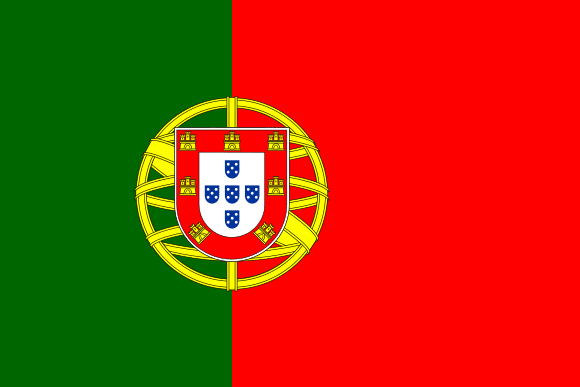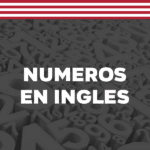The pronouns in Portuguese (and in other languages) are variable words and that generally accompany the nouns. They are used to:
- Indicate people who have participated in a debate or speech
- Express treatments and social forms
- Perform complex sentences
The usefulness of pronouns is that allow to give coherence and meaning to texts, in such a way that they can indicate order, context and in general help us to understand the message they want to share with us.
How to write pronouns in Portuguese
Singular
| Persona | Pronoun (Portuguese) | Spanish translation) |
| Home | Meu, minha, meus, minhas | My, mine, mine, mine |
| Away | Teu, you, you, you | You, you, your, your |
| Third | Seu, sua, seus, suas | His, his, his, his |
Plural
| Persona | Pronoun (Portuguese) | Spanish translation) |
| Home | Nosso, nossa, nossos, nosas | Our, our, our, our |
| Away | Vosso, vossa, vosso, vosso | You, yours, yours, yours |
| Third | Seu, sua, seus, suas | His, his, his, his |
Examples of use
Some examples of how pronouns are used in Portuguese are the following:
- This house is mine. That house is minha
- The shirts are mine. As shirts são minhas
- Your houses are elegant. Vossas são elegant houses
- Its capabilities are truly impressive. Its capabilities are really impressive
Here is an image that you can download to your phone to help you learn:
Indefinite pronouns
In the Portuguese language the so-called indefinite pronouns are also used that indicate people, things or subjects that are not specified, for example:
- Some, some, some, some: Some, some, some some
- Someone: someone
- Something something
- Certain, certain, certain, certain: certain, certain, certain, certain
- Nenhum, nenhuma: none, none
- How much, how much, how many, how many: How much, how much, how many, how many
- So much, so many, so many: So much, so much, so many, so many
- Several, several: several and several
- Muito, muita, muitos, muitas: Much, much, many, many
- Pouco, pouca, poucos, poucas: Little, little, few, few
- Outro, outra, outros, outras: Other, another, others, others
- Qualquer: any
- All, All, All, All: All, All, All, All
- Tudo: all
- Nothing nothing
- Every: every
Examples of use of indefinite pronouns
- One day I'll be happy: Someday I will be happy
- Something is going on here: Something is happening here
- It is true that she is beautiful : It is true that she is cute
- No person has come to visit me: No one saw me visit
- So much that i love her: So much that I want
- There are several truths that I have to say: There are several truths that I have to tell
- Anyone can live in the flat: Anybody can live, not long
- I have nothing left of what I have done: Nothing that remains for me
Interrogative pronouns
Portuguese interrogative pronouns are used to ask specific questions, either direct or indirect.
- As? As?
- Than? What?
- Where? Where?
- Quem? Who?
- How many? How many?
- What? Which?
- When? When?
- Because? Why?
- Where? Where to?
- Where from? From where?
Examples
- How can I be happy in life?: How can I be happy in life?
- What are you doing to stand out?: Or what are you doing to stand out?
- Where you are right now?: Where are you at this moment?
- What is the formula for success?: What is the formula for the event?
Challenge pronouns
The challenge pronouns have the functionality of appearing the subjects in the sentence. They are used to qualify the subjects in terms of their quantity, either in singular or plural.
Singular
- eu: me
- you you
- ele, ela: he or she
Plural
- we: us
- you: you
- eles, elas: they and they
Examples of challenge pronouns
- I am a professional person: I am a professional person
- You are a kind person: You are a gentle person
- She is a distinguished doctor: She is a different doctor
- We study at a prominent university: We study at a prominent university
- They are coming tonight: Eles virão this night
Demonstrative pronouns
Demonstrative pronouns are those used in Portuguese grammar to know the location of a being always in relation to the person that is spoken in a sentence. It is worth mentioning that there is no demonstrative adjective in Portuguese.
Singular
Male East- (this) Esse - (that) That- (that)
Feminino Esta- (this) Essa - (that) That- (that)
Plural
Male Estes- (these) Esses- (those) Those- (those)
Feminino These- (these) Essas- (those) Those- (those)
Examples of demonstrative pronouns
- This table has no support to sit on: This table has no support to sit
- Those years went by so fast: Those years passed very fast
Relative pronouns in Portuguese are classified as variable and invariable and are as follows:
Variables
- or what are you: which, which
- cujo cujos: whose whose
- a qual as quais: which which which
- how many how many: how much how many
- cujo cujos cuja cujas: whose whose whose and whose
Invariable
- that: which
- quem: who
- where: where
Examples of use
- How long will it take: How long will it take
- The newspaper is successful, which presents prestigious news: O jornal é bem happened, which presents news of prestige
This has been all for today, we hope that our guide on Portuguese pronouns has been useful to you and remember to check the rest of the page to continue learning languages in an easy and completely free way. To finish, we leave you with a video that will help you in the pronunciation of pronouns in Portuguese:






It was a very interesting lesson